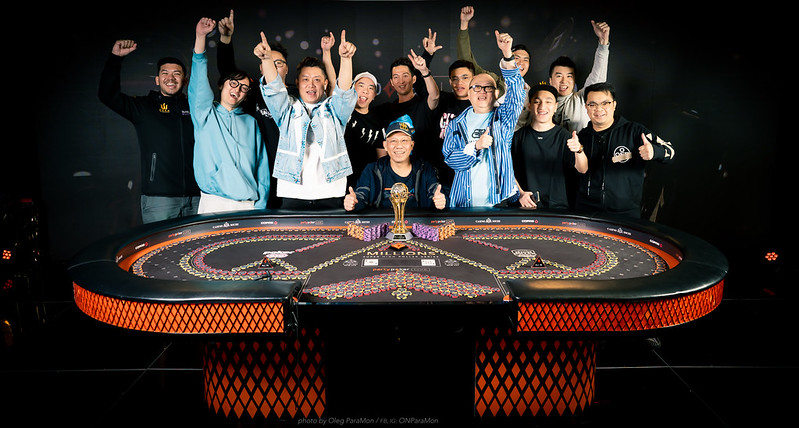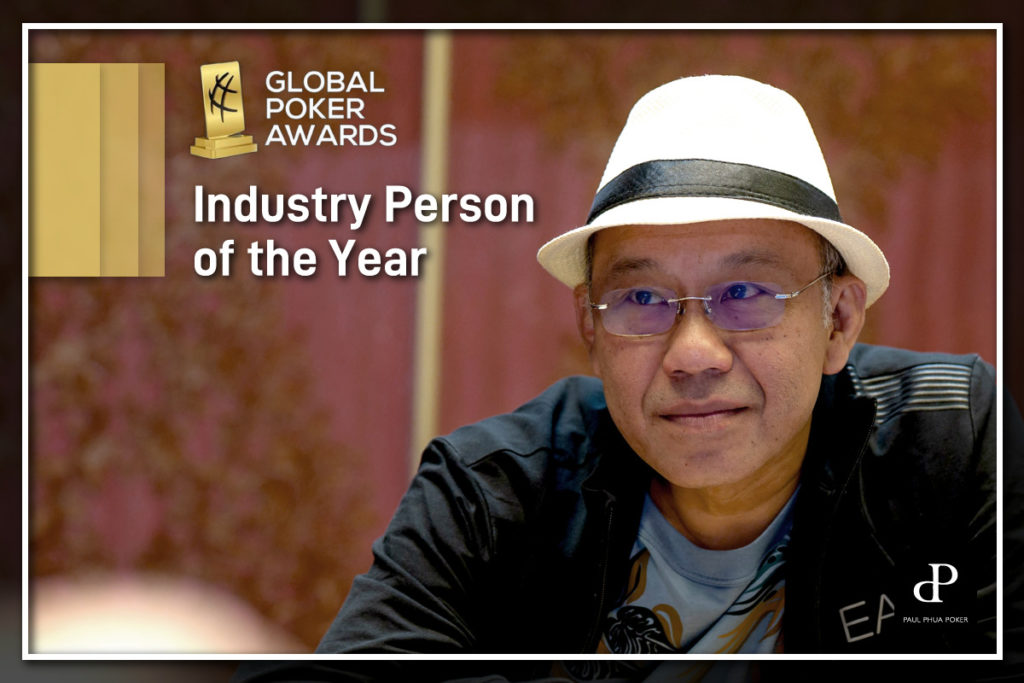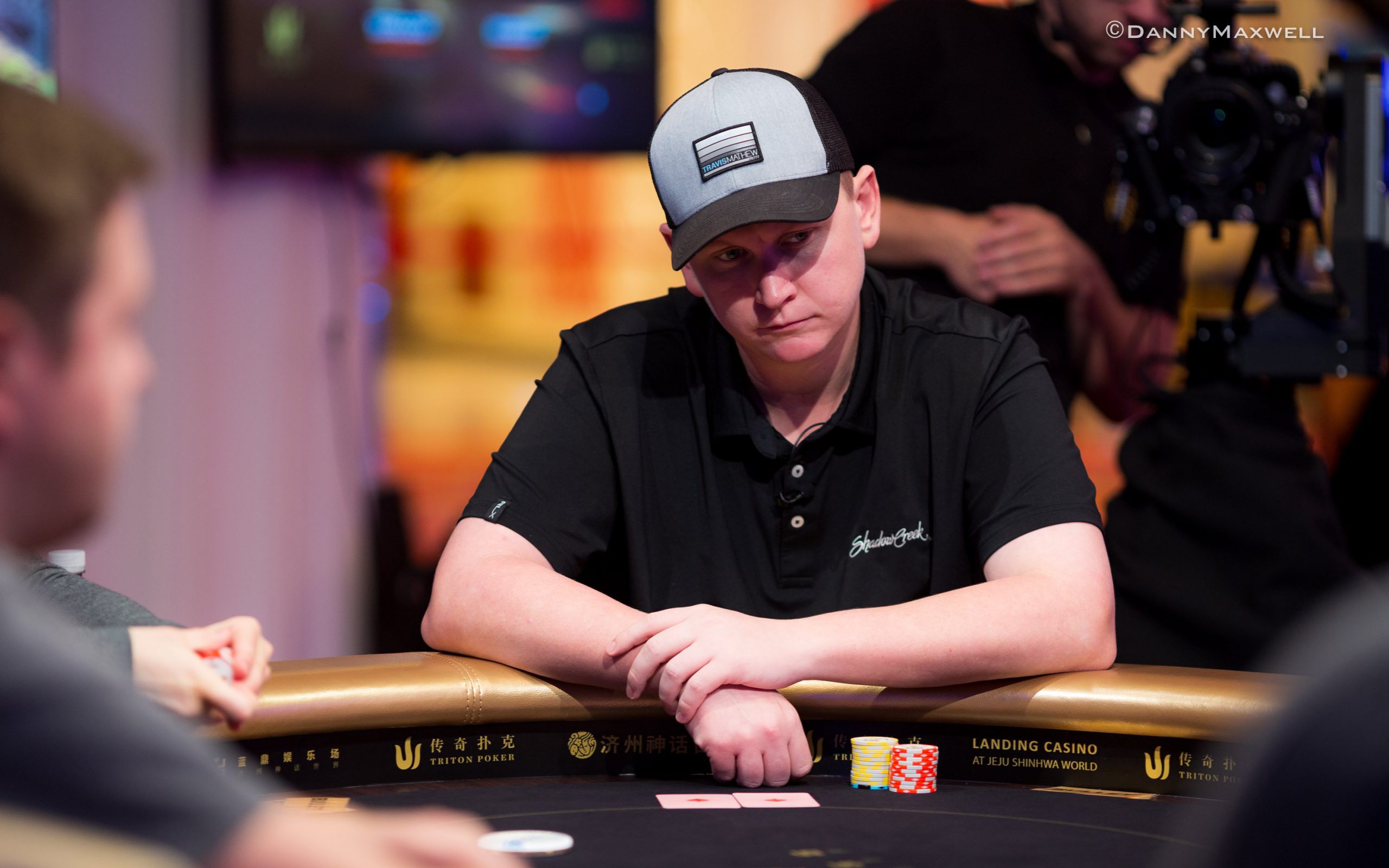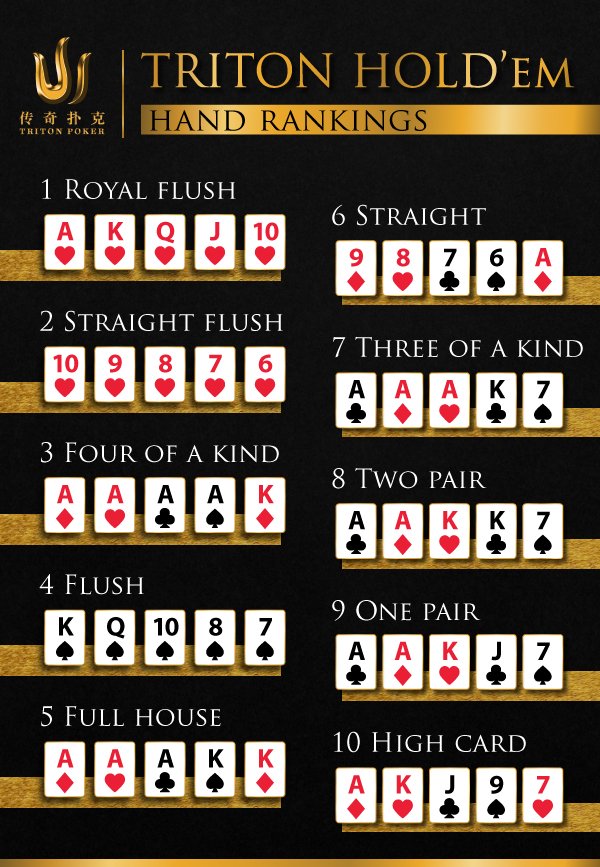
When Paul Phua won the Global Poker Award (GPA) for Industry Person of the Year, it was his first piece of silverware since winning a 13-entrant €100,000 No-Limit Hold ’em (NLHE) event at the 2016 Monte-Carlo One-Drop Extravaganza.
Four years is a long wait for a man who leads the Triton Poker Super High Roller Series in the money finish (ITM) leaderboard with 16, proving that he doesn’t merely mingle with the supremely talented, he is one.
The wait is other.
Phua came into the final day of Event #6: $100,000 NLHE as the shortest stack of the nine remaining players, but breezed through Day 2, overcoming Matthias Eibinger, heads-up, for the title.
Let’s get to the nitty-gritty.
Nutshell Action
As the 42-entrant field boiled down to the final seven combatants, only six would receive a check. The first person to dangle from that precipice was Michael Soyza, and he fell.
The action folded to Matthias Eibinger on the button, and he applied maximum pressure on the players in the blinds by moving all-in holding Ad2d. Soyza woke up with AcKc and made the call.
Soyza had Eibinger dominated, and the situation worsened when a second king arrived on the flop to increase Soyza’s lead. Then, the light at the end of the tunnel for Eibinger, as the 3d hit the turn to give the Austrian a wheel draw that connected when the 5c hit the river.
It was an exit that stank of intestines and curse words, but Soyza took it like the champion he is.
Paul Phua then doubled through Kahle Burns. The Australian opened with AhKc from under the gun, and Phua called with pocket deuces. The two shortest stacks didn’t need surgical instruments after the nuclear flop of Kh7d2c put the writing on the wall. Phua checked, Burns bet 60,000, and Phua called. The 4h hit the turn, and Burns bet 130,000, Phua raised all-in for 180,000 more, Burns made the call and mucked when he saw how dead he was.
Burns fell to a mere four big blinds after that hand. He did double-up through Eibinger when As5s beat Kh9s but then fell to Adrian Mateos when Ac3s hit the dam like AsJd.
Michael Addamo followed his compatriot out of the poker room door next. The action folded to Addamo in the cutoff, and he moved all-in for 1,140,000 holding Ks8s, and Chin Wei Lim isolated with a jam holding two red aces. The deck had placed a ligature around Addamo’s neck, and it cut off all oxygen after five blank community cards.
Then we lost Adrian Mateos.
The Spaniard moved all-in from the small blind holding 4c5c, and Phua made the call from the big holding Ks7c. A second seven landed on the flop, leaving three in the hunt for the title.
Chip Counts
Matthias Eibinger – 4,450,000
Chin Wei Lim – 2,400,000
Paul Phua – 1,500,000
From the bottom of the pack to the top, Phua took the lead after doubling through Eibinger when AhQc beat AsJd when all-in pre-flop. Eibinger would have the chance for retribution after Phua then eliminated Lim to face the Austrian heads-up.
Phua opened the button to 250,000 and Ac5d, and Lim called with 7c5c in the big blind. The dealer dropped 4h3d3s onto the flop like a cloud dropping rainwater into a gutter, and Lim check-raised jammed after Phua had bet 175,000. However, Phua would not be fooled and made the call with ace-high. The turn and river bricked and Lim was out.
Both Phua and Eibinger battled hard during the heads-up phase, but the Austrian’s chip stack never reached the heights of the Triton founder. The final hand saw Phua open to 400,000 with As8s, and Eibinger call holding Th8h. The dealer dealt a mustard flop of Ah9d8c, and Eibinger check-called for 250,000 and 500,000 when the Kd hit the turn. Finally, the 6c hit the river to give Phua a lock on the hand, and he moved all-in.
“I don’t believe you,” said Eibinger.
The call arrived, and Phua, not Eibinger ended up with the trophy.
ITM Results
- Paul Phua – $1,512,000
- Matthias Eibinger – $1,008,000
- Chin Wei Lim – $672,000
- Adrian Mateos – $420,000
- Michael Addamo – $336,000
- Kahle Burns – $252,000





















